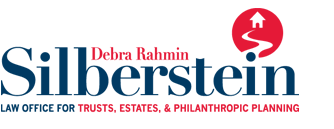On July 8, 2012, Massachusetts became the 25th state to officially adopt some form of the Uniform Trust Code. The Code, drafted by the Uniform Law Commission and adopted in various forms by state legislatures, aims to promote clarity and uniformity in state trust law, and replaces the trust law provisions of the Massachusetts Uniform Probate Code which became effective in March of last year.
A New Rule Book, Not Too Many New Rules
The Massachusetts Uniform Trust Code contains a variety of new rules that govern the formation and administration of trusts in Massachusetts, and represents a significant overhaul for the Commonwealth’s trust law, which has a rich history dating back prior to constitutional ratification. One of Massachusetts’ early trusts was settled by Benjamin Franklin, who named the City of Boston as a beneficiary in the amount of $2,000. Under the trust’s terms, much of the money was not distributed to the city until 1990. In the interim, however, the balance had grown to almost $6.5 million.
As a result of the Commonwealth’s highly developed trust law – which influenced the development of trust law around the country – much of the Massachusetts Uniform Trust Code’s substance tracks prior Massachusetts law. In fact, one of the most revolutionary aspects of the new law concerns the way it is recorded. When enacted, the Code replaced centuries of recorded court decisions – formerly the only source of trust law in Massachusetts – with clear and concise rules which, for the first time, are located in one place. However, the codification does bring with it some significant substantive changes, the majority of which apply to all trusts, whenever created.
Substantive Changes Increase Efficiency and Flexibility
Many of the Code’s substantive changes function to enhance the efficiency of trust administration , and to reduce unnecessary costs for beneficiaries and trustees. For example, the Massachusetts Uniform Trust Code allows for out-of-court settlements of certain disputes including trust interpretation, trustee liability, and trustee powers. The Code also permits minors or other legally incapacitated individuals (in certain circumstances) to be represented by parents or legal guardians, reducing the need for court-appointed guardians ad litem.
Other changes alter the default rules for trusts created on or after July 8, 2012. Reversing a longstanding rule in Massachusetts, new trusts are now presumed to be revocable unless the trust document indicates otherwise. Additionally, trustees of new trusts may act on the basis of a majority vote, while previous Massachusetts law required trustee unanimity unless the terms of the trust provided otherwise.
In line with prior Massachusetts law, the Code authorizes a court to approve modification or termination of an irrevocable, non-charitable trust upon receiving consent from all the beneficiaries, with the caveat that the proposed changes must not be inconsistent with a material purpose of the trust. In contrast to prior law, however, the Code also permits modification or termination even if inconsistent with a material purpose of the trust with upon consent of all beneficiaries and the settlor.
Trusts for Pets and Non-Charitable Purposes
Purpose trusts, which were invalid and unenforceable under prior law, are now specifically authorized in the Code, allowing Massachusetts settlors to create a trust that has no specific beneficiaries, but exists solely to further one or more legal, non-charitable purposes of the settlor. Such a trust could be used to provide for the maintenance of a settlor’s prized collection of antiques, for example, or for the maintenance of a vacation property to benefit future generations. Pet care trusts are also authorized, allowing for trusts for the care of one or more animals.




